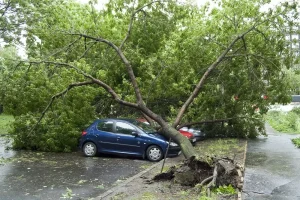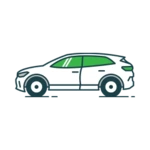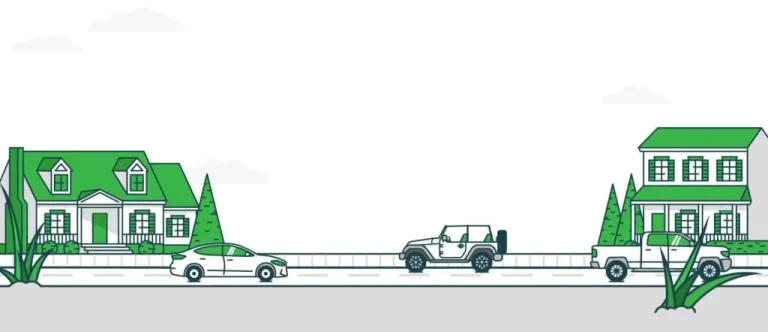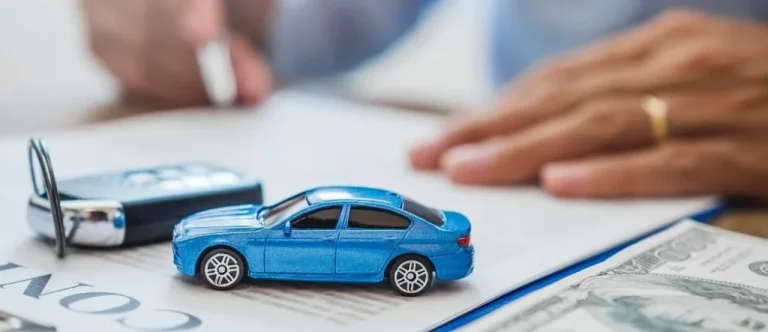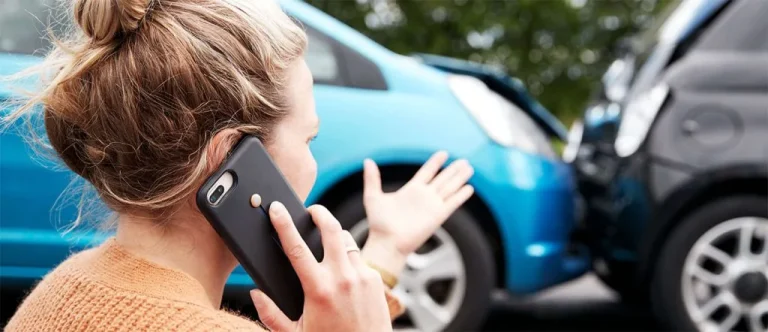Natural disasters occur all over the country. From the flooding of local bodies of water to hurricanes hitting coastlines, lightning striking at inopportune times, an unexpected hail storm wreaking havoc and so much more, your vehicle can take a beating through no fault of your own.
Damage from natural disasters is unexpected and, depending on the events that unfold during the disaster, it can wind up costing you anywhere from a few hundred bucks to having to buy a new car because yours was considered a total loss.
Luckily, car insurance can have your back in many ways. That is, if you know which type of insurance to get. Let’s take a look at the coverage you need, which natural disasters you could be protected from and much more.
Does Car Insurance Cover Natural Disasters?
Yes, car insurance covers natural disasters — such as hurricanes, tornadoes, hailstorms, earthquakes, flooding and other weather-related events also deemed by many as “Acts of God” — as long as your policy includes comprehensive coverage.
If your vehicle is damaged or deemed a total loss by a natural disaster, comprehensive coverage will pay you up to your policy’s maximum or your vehicle’s value to repair or replace it. All you’ll need to do is pay your deductible, which is typically from $250 to $1,000 for comprehensive claims, and your insurer will pay the remaining amount.
Comprehensive coverage is one of the three pillars of car insurance (liability, collision and comprehensive). While liability and collision coverage protect you and others while you’re driving, comprehensive is the coverage that protects your car from events that are out of the control of you and others — like natural disasters.
Liability and collision coverage won’t help you with natural disasters. The reason is that liability coverage helps pay for the damage to other people and their vehicles if you’re at fault in an accident. Having liability only means you don’t have a full coverage auto policy. And collision coverage is designed to pay for your vehicle and passengers inside it if you’re involved in an accident — whether you’re at fault or not.
If you don’t have comprehensive coverage on your policy, unfortunately, you won’t be protected from natural disasters that damage your vehicle. However, if you do have comprehensive coverage on your vehicle — which you likely will if you’re still financing or leasing your vehicle because your lender needs to protect their investment — you’re likely covered from the following natural disasters.
Wind Damage (Hurricanes & Tornadoes)
Some of the most common natural disaster damage comes from strong winds, such as hurricanes and tornadoes. Since hurricanes occur along the coastline and reach inland areas from Texas to Florida and all the way to Maine, they’re some of the most common natural disasters covered by car insurance.
Tornadoes are widespread as well, spanning from Oklahoma’s Tornado Alley across the Midwest into Illinois, Indiana and nearly everywhere else East of the Mississippi. Luckily, damage caused by tornadoes is covered by your policy’s comprehensive insurance.
As long as the damage was directly or indirectly caused by a hurricane or tornado, you should be covered. So if your car was swept away and totaled by a tornado, your insurer should cover that. If a hurricane or tornado knocked a tree onto your vehicle, you should also be covered for that.
Flood Damage
Though hurricanes and tornadoes are fairly common, the most common natural disaster in the world is flooding. FEMA creates designated flood zones that determine how likely it is there will be a flood in your area. Luckily, flood damage is covered by the comprehensive portion of your auto policy.
If you live in any type of flood zone, which means flooding will occur at least once every 99 years, and your vehicle is valued at $3,000 or more, you fit the description of needing comprehensive coverage. It will cover flooding from excessive rain, overflowing bodies of water and, if you live near the coast, even storm surge from the ocean.
Lightning Damage
While often rare and sometimes severe, damage from lightning strikes is also covered by comprehensive car insurance. This could include lightning directly striking your vehicle and messing up its electronic systems, lightning striking a nearby tree branch that falls on your car or many other forms of direct and indirect lightning strikes.
Hail Damage
One of the most common and costly forms of natural disasters that affect vehicles is hail. Hail can come from seemingly nowhere and reach the size of a baseball, which can do some serious damage to the body and glass of your vehicle.
Whether you’re driving down the highway and hail puts some serious dents in your vehicle, or your vehicle is parked in your driveway and experiences a cracked windshield, your policy’s comprehensive coverage should cover you from all forms of hail damage.
Earthquake Damage
While exceedingly rare in the U.S. except along the fault lines on the West Coast and parts of the Midwest, earthquake damage is also covered by the comprehensive portion of your auto policy. So if an earthquake opens the ground that swallows your vehicle or it just pushes the ground up under a nearby tree that falls on your vehicle, you should be covered.
Are Out of State Natural Disasters Covered by Car Insurance?
Yes, natural disasters that damage your vehicle while you’re out of the state in which you reside are covered by car insurance. Car insurance works similarly whether you’re at home, at the grocery store or 1,000 miles away in another state. As long as the damage occurred while you’re still in the U.S., your insurance should cover any qualified perils.
Who Needs Comprehensive Insurance?
Anyone who’s leasing or financing their vehicle needs to invest in comprehensive coverage. There’s a good chance your lender already requires it but, if they don’t, you should get it on your own. Also, if your vehicle is worth more than $3,000 or you don’t feel comfortable paying out of pocket for more than your deductible, you should get comprehensive coverage.
If your car insurance meets or exceeds the value of your vehicle, you’re probably OK dropping comprehensive coverage. You may also be OK to drop comprehensive coverage if your vehicle is getting up there in age and mileage.
How to Get Car Insurance That Covers Natural Disasters
With Clovered’s online auto insurance quote form, you can get a policy in minutes. Simply fill in some information about your vehicle and driving history and one of our licensed in-house agents will find you a policy that fits your needs and your budget.
The editorial content on Clovered’s website is meant to be informational material and should not be considered legal advice.
